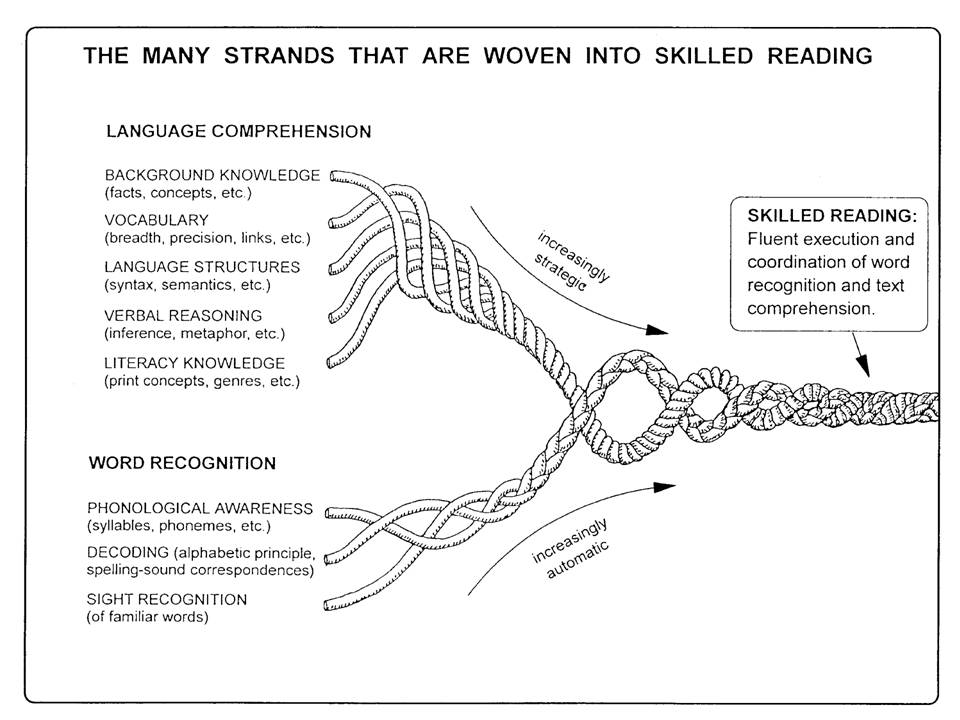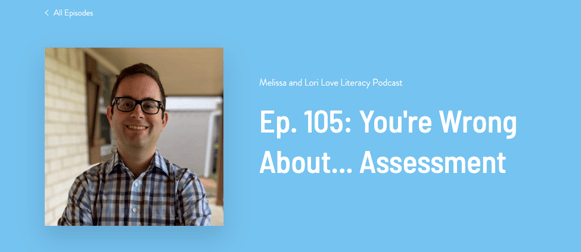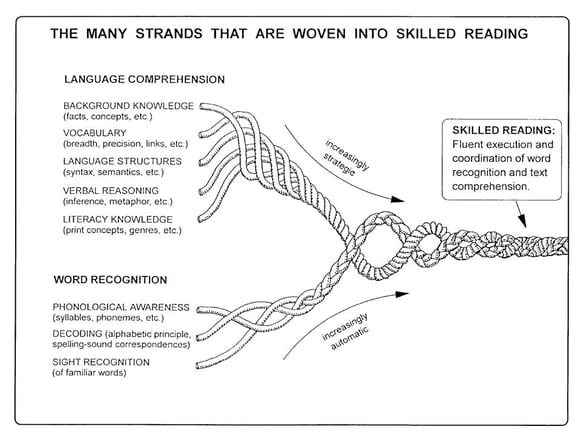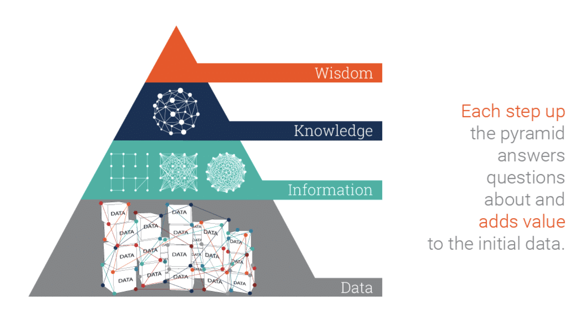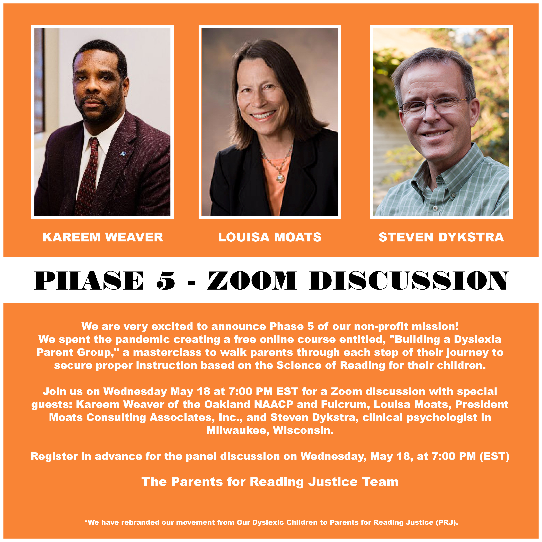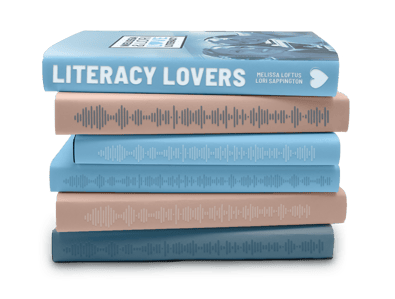Hi Literacy Lovers,
We have so many questions and thoughts about assessments… and we talk about them in this week’s episode with Great Minds’ assessment expert, Lior Klirs. It's a topic that we can’t wait to learn more about together, which is why you can expect a series of assessment podcasts coming your way this summer and fall. We’re so glad you’re here to learn with us!
Learn More
When we think about assessment, our first question is: What are we assessing?
-
Assessment of word recognition skills is straightforward to assess and monitor mastery
-
Assessment of the multidimensional nature of reading comprehension is much more complicated
We discuss the complicated nature of assessing reading comprehension in this week’s podcast episode, but Hugh Catts also explains it really well in this article: Rethinking How to Promote Reading Comprehension. Read an excerpt below or click the link for the full article.
Implications for Assessment
The multidimensional nature of reading comprehension presents a significant chalenge for assessment. Because of the numerous factors in play, a reader's comprehension ability is more fluid than often thought. In other words, any one individual will have different levels of ability depending on what is read and for what purpose.
We CAN assess word recognition strands as a skill. For example, phoneme segmentation, nonsense word fluency, and auditory processing. We CANNOT assess comprehension as a skill, because it’s dependent on knowledge. Here is an excerpt from another fabulous article by Hugh Catts, Why State Reading Tests Are Poor Benchmarks of Student Success, that discusses the importance of knowledge in assessing reading comprehension.
Whereas state reading tests are generally viewed as measures of students' reading ability, they assess much more than reading. So-called "reading tests" rely heavily on students' general knowledge and language skills (Cervetti & Wright, 2020). In fact, some have gone as far as saying that these reading tests are knowledge tests in disguise (Hirsch, 2016). So as not to bias students with particular knowledge, state reading tests cover a wide range of topics. But, of course, this gives students with broad general knowledge a significant advantage on these tests and presets a serious challenge to those without this knowledge (Hwang & Duke, 2020).
Community and Connection
Join us for Friday Podcast Chat on Facebook Live every Friday where we fill in knowledge gaps for just released episodes! This past Friday, we discussed all things assessment - skills vs. knowledge. In case you missed it, find the recording here.
Huge shout out to Brendan Lee @learnwithmrlee for a spot-on tweet about our latest episode. Check out the thread on Twitter!
This 👇 @literacypodcast with Lior Klirs from @GreatMindsEd is 👌
— Brendan Lee (@learnwithmrlee) May 8, 2022
👉He speaks about the Data, Information, Knowledge, Wisdom Pyramid
👉You can be very precise, without being accurate. Accuracy means you're hitting the bullseye, precise means you're nearhttps://t.co/hexB1EpJJ6
Lior and Brendan both mention the Data, Information, Knowledge, Wisdom pyramid, and here is a visual that shows the important steps when analyzing and processing data.
Upcoming Literacy Events
Our friends at Parents for Reading Justice (formerly Our Dyslexic Children) are excited to announce Phase 5 of their non-profit mission! Join Parents for Reading Justice on Wednesday May 18 at 7:00 PM EST for a ZOOM panel discussion with special guests, Kareem Weaver of the Oakland NAACP and Fulcrum, Dr Steven Dykstra, clinical psychologist in Milwaukee, Wisconsin and Dr Louisa Moats, President Moats Consulting Associates, Inc.
Register in advance for the panel discussion on Wednesday May 18 at 7:00 PM EST.
We can’t wait for this awesome event. Hope to see you there!
Related Episodes
-
Ep. 35: Reading Assessments NEED an Upgrade!
-
Jared Myracle shares why reading assessments need an upgrade, specifically, how and why curriculum should drive assessment (not vice versa). Check out his blog to learn more.
-
-
Ep. 37: Meredith Liben and Sue Pimentel on the Standards, Assessment, and Data
